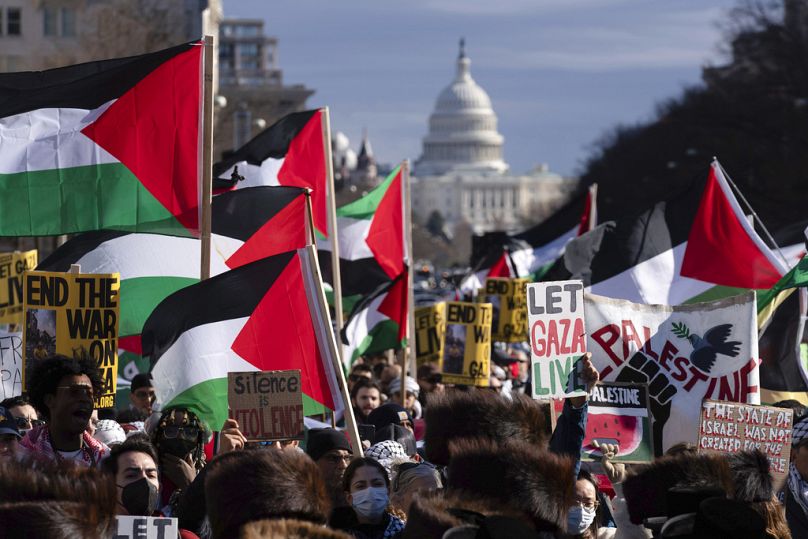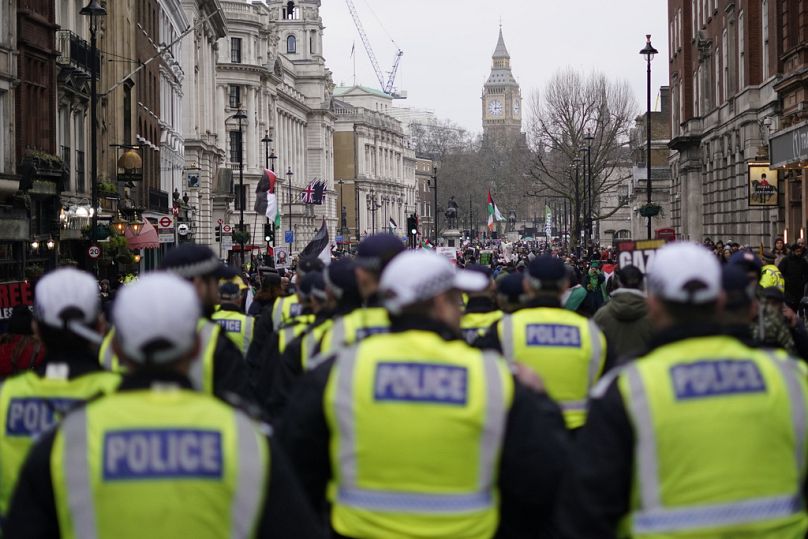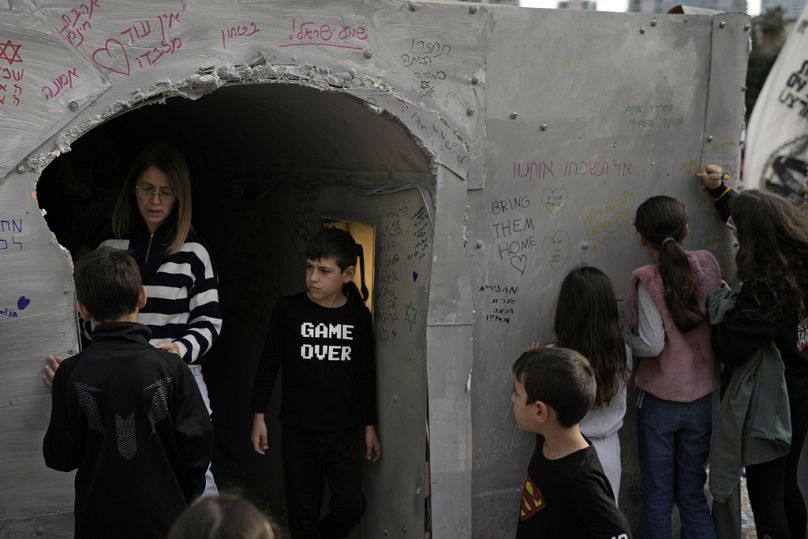Tens of thousands of people gathered in many of the world's capitals on Saturday to call for an immediate ceasefire in Gaza. A pro-Israel rally was set to take place in London on Sunday.
Sunday marks 100 days since 250 Israelis were taken hostage by militants who stormed across the border from Gaza on 7 October, triggering the latest war between Israel and Hamas.
 ADVERTISEMENT
ADVERTISEMENT
 ADVERTISEMENT
ADVERTISEMENT
Ahead of the grim milestone, tens of thousands of protesters in Europe and beyond staged huge rallies on Saturday in a global day of action against the ongoing war in Gaza.
In Washington DC, demonstrators voiced their anger towards the position of President Joe Biden's administration and called for a halt of US aid to Israel.
In London, protesters sought to draw attention to the plight of children in the Gaza Strip - symbolised by a giant puppet called Little Amal, a 3.5-metre puppet originally meant to highlight the suffering of Syrian refugees.
The puppet had become a human rights emblem during an 8,000-kilometre journey from the Turkish-Syrian border to Manchester in July 2001.
London’s Metropolitan Police force said some 1,700 officers would be on duty for the march, including many from outside the capital.
Metropolitan Police Assistant Commissioner Matt Twist told UK broadcaster Sky News that investigations will continue "after the event" in cases where people "have taken pictures of something that might be anti-Semitic or be inciting a hate crime."
A number of conditions were placed for the march, including a directive that no participant in the protest shall venture near the Israeli Embassy.
A pro-Israel rally was set to take place in London on Sunday.
Elsewhere, dozens of family members of some 130 Israeli hostages still held by Hamas militants attended the opening of an art installation in Tel Aviv.
This underground tunnel seeks to portray the conditions under which captives are being held in Gaza.
While dozens of women, children and foreigners were released during a weeklong November cease-fire, and a number of hostages have been confirmed dead, 132 others remain in captivity.
The Red Cross hasn’t been permitted to see them, and almost nothing is known about their conditions.













